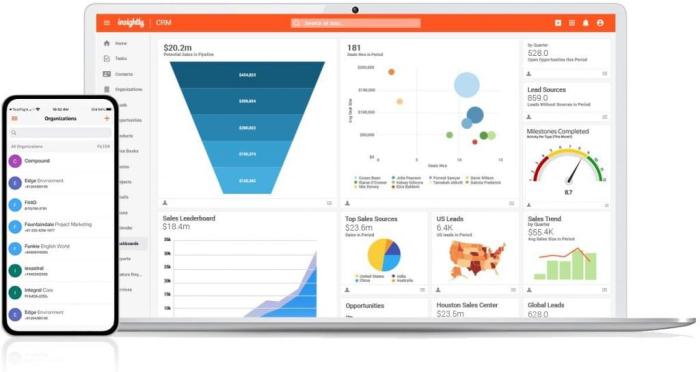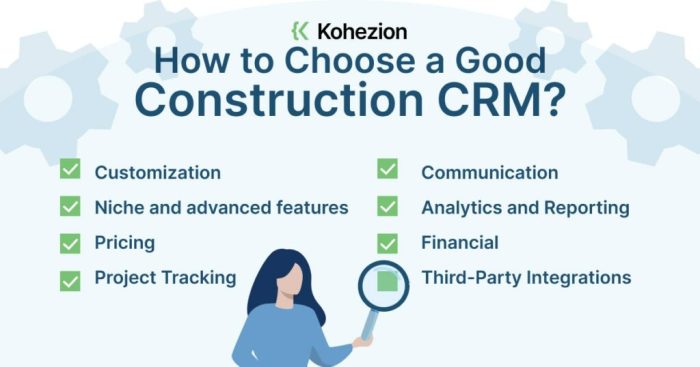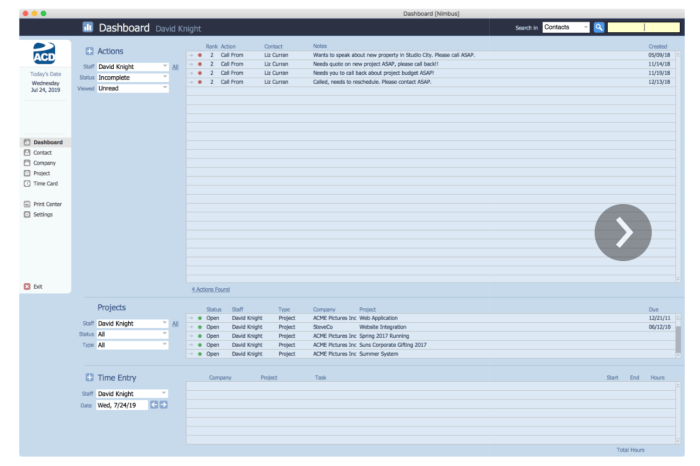CRM software for contractors is revolutionizing how construction and contracting businesses manage their operations. Effective CRM systems offer a centralized hub for managing leads, projects, client communication, and team collaboration, ultimately boosting efficiency and profitability. This allows contractors to focus less on administrative tasks and more on delivering exceptional results for their clients, fostering stronger relationships and driving sustainable growth.
From initial lead generation to final project completion, a well-implemented CRM system streamlines the entire workflow. Features like contact management, project tracking, invoicing, and reporting provide valuable insights into business performance, enabling data-driven decision-making. This leads to better resource allocation, improved project scheduling, and a significant reduction in administrative overhead.
In the dynamic world of contracting, juggling multiple projects, clients, and teams can feel like a constant juggling act. Efficient organization and communication are paramount to success, and that’s where Customer Relationship Management (CRM) software steps in. This comprehensive guide explores the benefits, features, and considerations of implementing a CRM specifically tailored for contractors, helping you transform your business operations and achieve greater profitability.
Why Contractors Need CRM Software: Crm Software For Contractors
Contractors, whether specializing in construction, plumbing, electrical work, or other trades, face unique challenges. Managing leads, scheduling jobs, tracking expenses, and maintaining client relationships all demand significant time and effort. A dedicated CRM system offers a centralized platform to streamline these processes, leading to:
- Improved Lead Management: Capture, qualify, and nurture leads more effectively, ensuring no potential opportunity slips through the cracks. CRM systems often integrate with lead generation tools for seamless data flow.
- Enhanced Project Management: Track project timelines, milestones, budgets, and resources with ease. Many CRM solutions offer task management features and progress tracking tools.
- Streamlined Communication: Maintain clear and consistent communication with clients, subcontractors, and suppliers. Features like integrated email, messaging, and scheduling tools facilitate seamless collaboration.
- Increased Efficiency: Automate repetitive tasks, such as sending proposals, invoices, and follow-up emails, freeing up valuable time for more strategic activities.
- Better Client Relationships: Build stronger client relationships by providing personalized service and timely communication. CRM systems help you track client preferences and interaction history.
- Improved Financial Management: Track expenses, invoices, and payments efficiently, improving cash flow management and profitability. Some CRMs integrate directly with accounting software.
- Data-Driven Decision Making: Gain valuable insights into your business performance through comprehensive reporting and analytics. Identify trends, areas for improvement, and opportunities for growth.
Key Features of CRM Software for Contractors
Choosing the right CRM requires understanding the specific features that cater to the contracting industry. Look for systems that offer:
Project Management Capabilities, Crm software for contractors
- Task Management: Assign tasks, set deadlines, and track progress on individual projects.
- Timeline Visualization: Gain a clear overview of project timelines and milestones.
- Resource Allocation: Effectively manage and allocate resources (personnel, equipment, materials) to projects.
- Budget Tracking: Monitor project budgets and expenses to ensure profitability.
Client Relationship Management Features
- Contact Management: Store and manage client information, including contact details, communication history, and project details.
- Lead Tracking: Capture and qualify leads, track their progress through the sales pipeline, and automate follow-up communication.
- Communication Tools: Integrate email, phone, and messaging functionalities for seamless communication.
- Customer Support Ticketing: Manage customer inquiries and resolve issues efficiently.
Reporting and Analytics
- Customizable Reports: Generate reports on key performance indicators (KPIs) such as project profitability, client satisfaction, and sales performance.
- Data Visualization: Present data in easily understandable charts and graphs for quick insights.
- Real-time Dashboards: Monitor key metrics in real-time to identify potential issues and opportunities.
Integration Capabilities
- Accounting Software Integration: Seamlessly integrate with accounting software for streamlined financial management.
- Scheduling Software Integration: Integrate with scheduling software to manage appointments and project timelines.
- Email Marketing Integration: Integrate with email marketing platforms for targeted communication with clients.
Choosing the Right CRM for Your Contracting Business
The best CRM for your contracting business depends on your specific needs and budget. Consider the following factors:
- Business Size and Complexity: A small contracting business might need a simpler, more affordable CRM, while a larger business might require a more comprehensive system with advanced features.
- Budget: CRM software comes in various pricing tiers, ranging from free options to enterprise-level solutions.
- Features and Functionality: Prioritize the features that are most important to your business, such as project management, client relationship management, and reporting capabilities.
- Ease of Use: Choose a CRM that is intuitive and easy to use for your team, even those who are not tech-savvy.
- Scalability: Ensure that the CRM can grow with your business as your needs evolve.
- Integration Capabilities: Check if the CRM integrates with other software you use, such as accounting software, scheduling software, and email marketing platforms.
- Customer Support: Look for a CRM provider that offers reliable customer support in case you encounter any issues.
Popular CRM Software Options for Contractors
Several CRM platforms cater specifically to the needs of contractors. Research and compare options such as:
- JobNimbus: Specifically designed for contractors, offering robust project management and client communication features.
- ServiceTitan: A comprehensive solution for home service businesses, including contractors, offering features for scheduling, dispatch, and customer management.
- HubSpot CRM: A popular and versatile CRM with a free plan, offering a wide range of features suitable for various businesses, including contractors.
- Zoho CRM: Another versatile CRM option with a wide range of features and integrations, suitable for businesses of all sizes.
- Salesforce: A powerful and scalable CRM solution, ideal for larger contracting businesses with complex needs.
Implementing and Optimizing Your CRM
Successfully implementing a CRM requires careful planning and execution. Follow these steps:
- Define Your Goals: Clearly define what you want to achieve with your CRM. This will guide your selection and implementation process.
- Choose the Right Software: Select a CRM that aligns with your business needs, budget, and team’s technical capabilities.
- Data Migration: Carefully migrate your existing client and project data into the new CRM system.
- Training and Onboarding: Provide comprehensive training to your team on how to use the CRM effectively.
- Regular Monitoring and Optimization: Regularly monitor the performance of your CRM and make adjustments as needed to ensure it continues to meet your business needs.
Frequently Asked Questions (FAQ)
- Q: How much does CRM software for contractors cost? A: The cost varies greatly depending on the features, scalability, and provider. Expect to find options ranging from free plans to several hundred dollars per month for enterprise-level solutions.
- Q: Is CRM software difficult to use? A: Many modern CRM systems are designed to be user-friendly and intuitive. However, the complexity can vary depending on the chosen software and the features you utilize. Proper training is key.
- Q: How long does it take to implement a CRM? A: Implementation time depends on factors like data migration, training, and system customization. It can range from a few weeks to several months.
- Q: What are the key performance indicators (KPIs) to track with a CRM? A: Key KPIs for contractors include project profitability, client satisfaction, lead conversion rates, sales revenue, and project completion rates.
- Q: Can a CRM help improve my cash flow? A: Yes, by streamlining invoicing, payment tracking, and expense management, a CRM can significantly improve cash flow visibility and management.
Conclusion
Implementing a CRM is a strategic investment that can significantly enhance the efficiency and profitability of your contracting business. By carefully selecting the right software and optimizing its use, you can streamline your operations, improve client relationships, and achieve greater success. Don’t let disorganized data and inefficient processes hold you back – take control of your business with a powerful CRM solution today!

Source: technologyadvice.com
Efficient CRM software is crucial for contractors to manage projects and client relationships. The need for organized client information and streamlined communication is a shared challenge across various industries, much like the demands faced by law firms. In fact, many of the benefits found in crm software for law firms translate directly to the contractor world, improving job tracking and overall business efficiency.
Ultimately, the right CRM system can significantly boost productivity for contractors, regardless of industry specifics.
Call to Action
Ready to transform your contracting business? Explore the CRM options mentioned above and find the perfect fit for your needs. Start your free trial or request a demo today and experience the difference a streamlined workflow can make!
In conclusion, adopting CRM software represents a strategic investment for contractors seeking to enhance operational efficiency, strengthen client relationships, and achieve sustainable growth. By centralizing information, automating tasks, and providing valuable data-driven insights, CRM systems empower contractors to focus on what truly matters: delivering exceptional projects and building a thriving business. The benefits extend beyond immediate productivity gains, contributing to a more organized, profitable, and ultimately, successful contracting enterprise.
Query Resolution
What are the key features to look for in CRM software for contractors?

Source: kohezion.com
Essential features include contact management, project management tools (scheduling, task assignment), invoicing and payment processing, reporting and analytics, and ideally, mobile accessibility.
How much does CRM software for contractors typically cost?
Pricing varies greatly depending on the features, number of users, and vendor. Expect to find options ranging from affordable monthly subscriptions to more enterprise-level solutions with higher costs.
Can CRM software integrate with other business tools?

Source: revopsteam.com
Many CRM systems offer integrations with accounting software, project management platforms, and other business applications to create a seamless workflow.
How long does it take to implement CRM software?
Implementation time depends on the complexity of the system and the size of the business. It can range from a few weeks to several months.
